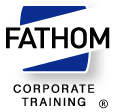When trying to decide on something recently that seemed extremely important, I found myself feeling stuck and frustrated. The problem in trying to make the “right” decision is that we can develop “analysis paralysis.”
Many times the perceived importance of the decision can feel overwhelming. Some of us may have a hard time simply deciding what to order on the restaurant menu. We turn and churn about trying to make perfect decisions when sometimes we don’t even have all of the necessary information to make those decisions. Ultimately this takes our time and our peace away from us.
Fortunately, the frustration with my own indecisiveness was followed by a new, clear understanding of how much time I have wasted in life trying to make that “right” decision and realizing that the ROI, or return on investment, declines in this process. The more time you spend in frustration and struggle, the lower the net return.
Remind yourself every day that a perfect decision or direction does not exist, except for maybe on a compass. Expect that there will always be an alternate path staring you in the face. When the fear of the unknown and its first cousin, indecisiveness, comes up, realize a couple things:
1. There is no perfect answer
2. We don’t know the future
3. More time and struggle means a lower return
There are typically a few roads to getting where you want to go. Because there is no real way to know what roadblocks may lay ahead, it may be time to simply choose. Ultimately, you’ll get where you’re going and feel more productive and efficient. And, you may discover a new way to get things done that you could never have planned for. Step into the unknown. Rather than worrying about making the right or wrong decision, choose to experience something new. This skill is something we can learn and practice. Fathom helps clients do this in its Time Management Workshop sessions.
John Males is Founder and President of Fathom Corporate Training. With more than 20 years of experience in management, sales and negotiations, he helps clients increase employee satisfaction, lower turnover, increase revenue and raise profit margins.

